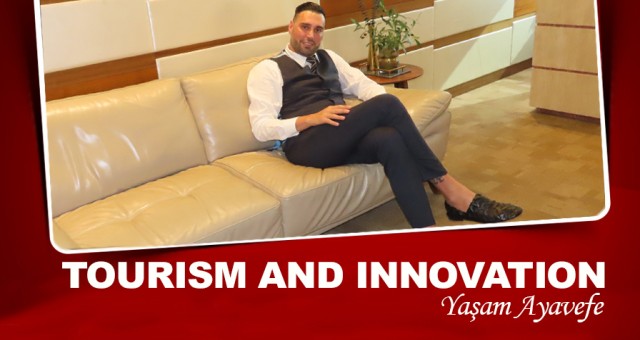Tourism as a human activity is the response that satisfies the person and his values, society and its goals, the government and budgetary ambitions.
This human activity has been institutionalized over generations since its emergence, passing from an individual need shared by a social class to an emerging, directed, cultivated, democratized need.
All this explains the growing interest of small and large companies of states in this important source of income.
Thus, the need to anticipate the needs and desires expressed by potential tourists is, in short, the need to innovate.
Innovation in tourism, discussed in this series, reflects the authors' concerns in various socio-economic frameworks arising from:
1: historicity
2: level of economic development
3: strategic vision of the role devoted to tourism
4: geostrategic summary of the sector's impact
Therefore, it translates a local point of view. It is a reflection that aims to be global in the image of the current globalization of economies and interactions between countries.
Historical Perspective
An actor of the 21st century is in contact with his environment at a double social and regional level.
His failure in this industry and his desire to return led him to become interested in real estate.
It is a combination of opportunities evolving towards leisure in a socioeconomic and regional background. The advent of paid holidays naturally gave the site a touristic side.
So much so that we can say that it is the actor's cognitive interaction with his environment that determines not only the choice of sectors of activity, but also the choice of innovative productions that allow his company to ensure the autopoietic evolution.
Level of Economic Development
While the concept of tourism, which emerged in the West, was very quickly taken over by developing countries as a way and tool of development strategies, it continued to be an increasingly important sector of the economies of developed countries.
The asymmetrical development of the sector has been observed, with large groups on the one hand and a large number of small operators on the other.
Local private operators are at the center of discussions on the fight against impoverishment and sustainable development. In fact, it is at the center of what the authorities' policy should be in terms of tourism.
This allows them to develop activities fairly in terms of motivation, training and support, local players and financial innovation.
It is a bias that seems more likely to ensure that tourism issues are allocated to the population. The tourism sector is a vital sector for the country's economy.
Likewise, they say it would be wise to limit it to the powers of developing countries by questioning in the consumer relationship management approach.
A place that remains the first tourist destination and the first market deserves the development of a strategic watch tool that will also be a source of communication innovation.
Observing asymmetric development reflects the issue of measuring the economic effects of international tourism on destination countries.
International organizations such as UNESCO, World Bank, European Union, World Tourism Organization (UNWTO) position international tourism as a tool to promote development and fight poverty.
importance of innovation in tourism industry
innovative products in tourism
innovation in tourism during covid-19
smart and innovative tourism development research
smart tourism innovation and reinvention for an industry in crisis
tourism innovation 2021
reinventing tourism
smart tourism, covid-19
Despite this confidence, critics point to this fact. It is said that very little of the tourism spending by travelers ultimately accrues to developing countries.
The emerging tourism satellite accounts methodology, if generalized, would allow the real impact of international tourism on the economy of developing countries to be known.
In the final analysis, it is ecotourism and adventure tourism that will be the least source of leakage compared to sea tourism and holiday packages.
This means that these two issues form the main pillars of sustainable tourism that will benefit, above all, the local population.
Advocates of solidarity tourism present it to us both as a tool to combat accessibility poverty and as an integrated human development project, often supported by the village community.
Solidarity tourism integrates ideals with strong cosmic resonance into a common economic process. Putting people and their encounters at the center of its approach, it is closely aligned with the perspective of sustainable development and peaceful interactions between peoples.
Born in the fair-trade movement in the 1990s, this type of tourism is inseparable from its future development and integration (international relations building) specific to the solidarity economy.
The economic weight of the sector brings us back to the need for meticulous management of tourism projects, as it is crucial for a country that is becoming a destination.
Dr.Yaşam Ayavefe




























Yorum Yazın